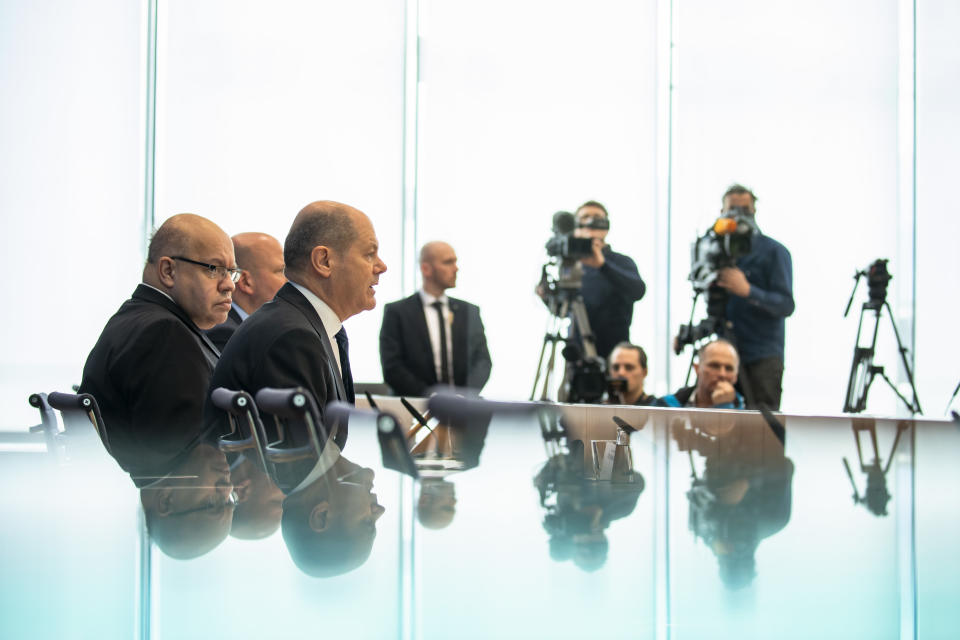Berlin to earmark €40bn to help self-employed and tiny enterprises weather coronavirus impact

According to Der Spiegel (link in German) magazine, the federal government in Berlin will make €40bn (£37 bn, $43bn) available to support small businesses, sole traders, and self-employed people, a group that is particularly financially threatened by the coronavirus pandemic.
The rescue package will reportedly be divided into two parts, with €10bn given as direct grants to one-person businesses and very small companies, and the remaining €30bn being issued as loans.
Business associations have been calling on the government to act quickly to help the millions of self-employed people — from freelance photographers, to tiny shops, to carers and cleaners—whose income has suddenly dried up as the country goes into virtual lockdown and all but essential shops are shut.
READ MORE: Germany's Merkel says Covid-19 is the 'biggest challenge since WWII'
"We now have to ensure the existence of self-employed and small businesses very quickly.” Eric Schweitzer, president of the German Chambers of Industry and Commerce said earlier this week. In most cases these people would find it impossible to get loans.
The aid package, called the solidarity fund, should be formally signed off by the cabinet on Monday. It could effectively spell an end to Germany’s long-held ‘Black Zero’ — the government policy against taking on new debt and maintaining a balanced household budget, which has been enshrined in the constitution since 2011.
German chancellor Angela Merkel and finance minister Olaf Scholz have already hinted that the government would borrow money to shore up the economy in the face of the coronavirus pandemic.
Both Scholz and economy minister Peter Altmaier have said that the government will “do whatever is necessary” and that its years of running budget surpluses would stand it in good stead in terms of its credit worthiness now.
Last week, they launched a fiscal aid package to help companies retain staff and get access to liquidity, by offering them “unlimited credit” via the KfW state development bank.
The number of reported cases of coronavirus now stands at almost 11,000 in Germany, with 20 dead.

 Yahoo Finance
Yahoo Finance 